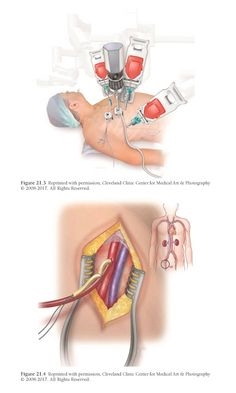The inflammatory process in the nasopharynx is most often the result of exposure to infectious agents, bacteria, viruses. Allergies can also be the cause of the development of a pathological process in the throat, pharynx or nose. Often, smoke, dust or other irritating factors cause damage to these parts of the respiratory tract.
Fight against the causative agent of the disease
 The inflammatory process in each of the sections of the upper respiratory tract rarely occurs in isolation, more often its combined lesion is observed. With regard to therapeutic measures, they depend on the clinical symptoms of this process in each case and are due to the cause of the development of the process. The inflammatory process in the nasopharynx usually has a mild course and is characterized by symptoms such as
The inflammatory process in each of the sections of the upper respiratory tract rarely occurs in isolation, more often its combined lesion is observed. With regard to therapeutic measures, they depend on the clinical symptoms of this process in each case and are due to the cause of the development of the process. The inflammatory process in the nasopharynx usually has a mild course and is characterized by symptoms such as
- sore throat;
- cough;
- runny nose;
- nasal congestion;
- malaise;
- headache;
- increased body temperature.
Treatment of the nasopharynx involves the implementation of measures aimed primarily at preventing complications of this disease. Most often, the cause of the development of the inflammatory process of the upper respiratory tract is ARVI, which can be complicated by bronchitis, sinusitis, pneumonia, otitis media. Therefore, in addition to improving the general condition, reducing clinical symptoms, therapeutic measures should prevent the development of these severe complications.
The causes of ARVI are various viruses. A reliably effective treatment against these pathogens has not yet been developed. Therefore, therapeutic measures should include a set of measures aimed at reducing the concentration of viruses in the patient's body and imply the following actions:
- moisturizing the nasopharyngeal mucosa, which contributes to the death of pathogens, and also prevents the penetration of pathogens into the body through the entrance gate;
- provision of conditions conducive to the fastest elimination of pathogenic agents from the body.
The most favorable habitat for viruses is the warm, dry air of an enclosed space. In this regard, the treatment of the nasopharynx at home implies taking measures to increase the humidity of the air in the room and adherence to the temperature regime, in which it will be easier for the body to give off heat. They are as follows:
- regular ventilation of the room where the patient is located;
- humidifying the air in the bedroom;
- observance of the temperature regime of the air no higher than 21 degrees.
Such actions will reduce the concentration of viruses in the air, in addition, they will promote perspiration, which will lead to an easier course of the disease, and prevent the development of complications.

Moisturizing the mucous membranes of the nasopharynx can be achieved in the following ways:
- drinking plenty of fluids;
- moisturizing the nose and throat with the help of special aerosols prepared at home or purchased from the pharmacy chain, "Salin", "Aqua Maris".
The value of hydration
As a liquid used for inflammation of the nasopharynx, tea, juices, compotes, mineral water can be used. Among the available means, than to treat the nasopharynx for an adult, decoctions of herbs, including chamomile, thyme, linden, are widespread. Rosehip decoction has become very popular. It has a pleasant taste, contains a large amount of useful trace elements and vitamins, and is characterized by a pronounced diuretic effect. Its use accelerates the elimination of pathogenic microbes from the body.
Hydration of the body contributes not only to moisturizing the mucous membranes, but also to detoxify the body.
Excretion of pathogenic microbes in the urine helps to reduce their pathogenic effects. In addition, any respiratory infection is accompanied by the development of hyperthermia, often to high rates. Drinking warm drinks promotes heat transfer and a decrease in body temperature.
Using decoctions of herbs
Some herbal decoctions have a positive effect directly on the mucous membrane of the throat, soften cough and promote the separation of phlegm. Decoctions of herbs such as wild rosemary, marshmallow root, coltsfoot have a pronounced expectorant effect. Decoctions of herbs used in the form of inhalation give a good effect. An indispensable remedy for cough treatment is alkaline mineral water, as well as milk.

Sore throat and sore throat quite often characterize the inflammatory process in the nasopharynx, delivering unpleasant sensations to the patient. In this case, the reduction of symptoms is facilitated by both phytopreparations used in the form of decoctions or inhalations, and various aerosols actively offered by the pharmacy network. The composition of medicines used for irrigation of the oral cavity includes antiseptics, anti-inflammatory components. The most popular are
- Givalex;
- Tantum Verde;
- Jocks.
The same therapeutic effect can be achieved when using pills, lozenges, lozenges containing similar components, such as Faringosept, Lisobakt, Strepsils. Some of them include local anesthetics, which translates into a more pronounced analgesic effect of these drugs.
With the phenomena of pharyngitis, accompanied by pain in the throat, a quick and pronounced effect can be achieved with the use of such agents as soda or hypertonic solution, decoctions of anti-inflammatory herbs.
It is recommended to rinse several times during the day using a glass of solution.
The required concentration of soda and salt is one teaspoon per glass of warm boiled water. Herbal decoctions, soda solution, products containing essential oils are used as means for inhalation.
Therapeutic tactics for a cold
As for the treatment of the common cold, which almost always occurs with ARVI, the presence of mucus in the nasal cavity is a protective reaction to the effects of pathogenic agents. Fighting this factor is an unjustified action. The virus lives in the body for about 5 days, then it dies. After this period of time, all clinical manifestations of the disease regress. The task of therapeutic measures is to alleviate the patient's condition, and to prevent the addition of a secondary infection.

Vasoconstrictor drugs can be prescribed only with severe nasal congestion, when this symptom complicates the course of the disease, interferes with proper rest, or when symptoms of involvement of the auditory tube in the process appear.
It must be remembered that the duration of taking vasoconstrictor nasal drops should not exceed 5-7 days. Otherwise, it can lead to the development of addiction, deterioration of the patient's condition and the development of mucosal atrophy.
In addition, the use of these funds is associated with the possibility of developing dangerous side effects set forth in the instructions for the drug.
Antipyretic drugs
How to treat the nasopharynx depends on the clinical signs of the disease and is due to the severity of the process, the age of the patient, and the presence of concomitant pathology. This is especially true for the use of antipyretics and antibiotics. The increase in body temperature observed during the inflammatory process of the nasopharynx is a protective reaction and characterizes the activation of the body's defenses.
The use of antipyretics in the presence of symptoms of damage to the upper respiratory tract is irrational.
Such actions reduce the effectiveness of defense mechanisms. The appointment of paracetamol and other drugs of this group is advisable only when the temperature rises above 39 degrees, or in a severe course of the disease, when its severity is due to the presence of severe concomitant pathology, especially from the cardiovascular system.
Antibiotics
The approach to prescribing antibiotics in the treatment of nasopharyngeal inflammation should also be strictly justified. Drugs in this group are effective only in the presence of a bacterial pathogen. Respiratory diseases are most often caused by viruses, which are not affected by antibiotics. Therefore, the presence of a viral infection excludes the use of these drugs for treatment.
However, antibiotics become very necessary with the development of complications, which are most often caused by the addition of a bacterial pathogen. Their appointment should always be agreed with the attending physician, since in most cases the use of antibiotics is accompanied by a decrease in immunity, which means that it lengthens the duration of treatment. Many of the drugs in this group have a toxic effect on the kidneys, liver, and lead to the development of dysbiosis. The appointment of these funds for the treatment of the nasopharynx should always be balanced. At an earlier date, antibiotics can be used in premature infants, immunocompromised patients with concomitant severe pathology.
Therapeutic tactics at home
 Since pathological processes in the nasopharynx are characterized by a mild course, their treatment is carried out on an outpatient basis. Only patients with a severe course of influenza and those belonging to the risk group are subject to hospitalization. General therapeutic measures are as follows:
Since pathological processes in the nasopharynx are characterized by a mild course, their treatment is carried out on an outpatient basis. Only patients with a severe course of influenza and those belonging to the risk group are subject to hospitalization. General therapeutic measures are as follows:
- adherence to bed rest;
- preservation of temperature indicators and humidity in the room at a certain level, contributing to the speedy death of pathogens;
- carrying out regular wet cleaning in the room and airing it;
- drinking plenty of fluids;
- irrigation of the nose, which helps to protect the gate of infection from the introduction of pathogenic microbes into the body;
- carrying out symptomatic treatment, including, depending on clinical signs, the use of topical drugs in the throat cavity, cough suppressants, antipyretic drugs;
- the use of physiotherapeutic treatment, including inhalation, warming compresses with antiseptic and anti-inflammatory drugs;
- vitamin therapy; the use of funds aimed at increasing immunity.
Symptoms of nasopharyngeal lesions can be characterized by allergic conditions. Exposure to allergens also includes rhinitis, nasal congestion, sore throat, and dry cough. For differential diagnostics, it is important that such conditions rarely occur with an increase in temperature, with their development there is always a provoking factor, seasonal nature and the presence of additional signs are often noted.
Medical approaches in this case will differ markedly. The most effective treatment for the nasopharynx in this case is the elimination of the allergen and the use of antihistamines. In all cases, when the cause of the development of symptoms is unclear, it is necessary to consult a physician to clarify the diagnosis.



